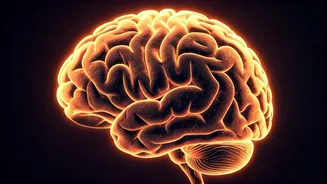Micro-Rests Explained
The concept of micro-rests involves incorporating brief intervals of mental respite throughout the day. These pauses, typically lasting only a few minutes,
are designed to give the brain a much-needed break from constant processing and stimulation. By intentionally stepping away from demanding tasks or activities, individuals allow their minds to reset, fostering better cognitive performance. Unlike longer breaks, micro-rests are easily integrated into even the busiest schedules. They could involve anything from a few moments of deep breathing and mindfulness to simply gazing out a window or taking a short walk. The primary aim is to shift focus and reduce cognitive load. Scientists suggest these small reprieves can be incredibly effective in combating mental fatigue, improving focus, and enhancing memory recall. The practice essentially provides a chance for the brain to consolidate information and clear out mental clutter. By introducing regular micro-rests, individuals can experience increased productivity and a heightened sense of mental clarity.
Memory Benefits Uncovered
Research underscores the profound impact of micro-rests on memory function. When the brain is continually overloaded, its capacity to encode and retrieve memories can diminish. Micro-rests offer a solution by providing opportunities for the brain to process and solidify newly acquired information. These short breaks allow the prefrontal cortex, which governs higher-level cognitive functions, including memory, to restore its resources. Studies have indicated that even a few minutes of relaxation or focused attention can lead to improved memory consolidation. This means that individuals who incorporate micro-rests into their routines are better equipped to recall details and retain knowledge. Furthermore, micro-rests can alleviate the effects of mental fatigue, which significantly impairs memory and concentration. Regular breaks can help maintain a higher level of alertness, allowing one to stay more engaged in the task at hand. The practice not only boosts memory directly but also indirectly enhances cognitive processes, leading to more efficient learning and recall.
Mental Wellness Connection
The link between micro-rests and mental health goes beyond enhanced memory, extending to overall well-being. By taking frequent breaks, individuals can reduce stress levels and combat feelings of burnout, which often arise from prolonged periods of intense work or activity. Micro-rests provide a vital opportunity to practice mindfulness and self-awareness, allowing people to notice and address any signs of mental fatigue. This proactive approach can prevent the escalation of stress-related symptoms. Incorporating regular breaks can also improve emotional regulation. Simple acts like deep breathing or taking a moment to appreciate the present moment can calm the nervous system and promote a sense of inner peace. Scientific findings suggest that micro-rests can enhance emotional resilience, meaning that individuals are better equipped to handle challenges and navigate difficult situations. The integration of these techniques promotes a culture of self-care and mental health maintenance. This ultimately leads to a happier, healthier, and more balanced lifestyle.
Practical Implementation Strategies
Implementing micro-rests into a daily routine is straightforward and adaptable to various lifestyles. One can start by setting reminders throughout the day to take brief pauses. These can be as simple as a 2-minute break every hour or a short walk every few hours. During these breaks, engage in activities that offer mental respite, such as closing your eyes and practicing deep breathing, listening to calming music, or simply stretching. It’s also important to consciously avoid multitasking during micro-rests, allowing the mind to fully disengage from cognitive demands. For those working at a computer, consider using a timer to schedule regular breaks. During the breaks, one could stand up and move around, look away from the screen, or stretch. Additionally, one could incorporate mindfulness techniques such as focusing on the breath or body scans. Experiment with different types of micro-rests to find what suits best. Consistency is crucial, as the cumulative effect of these small breaks significantly contributes to mental health and memory performance. Over time, these practices will lead to a more refreshed and focused mind.



















